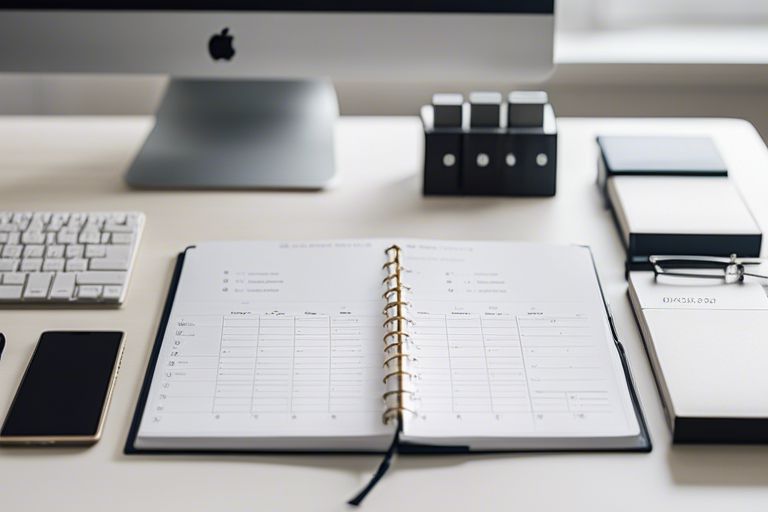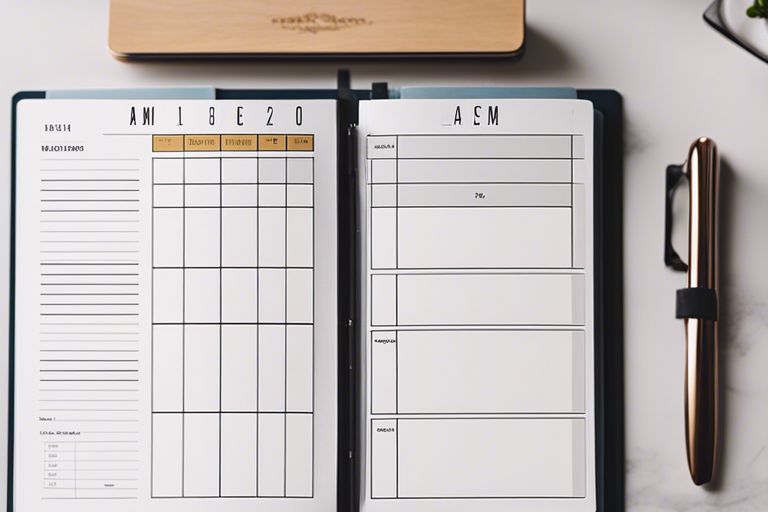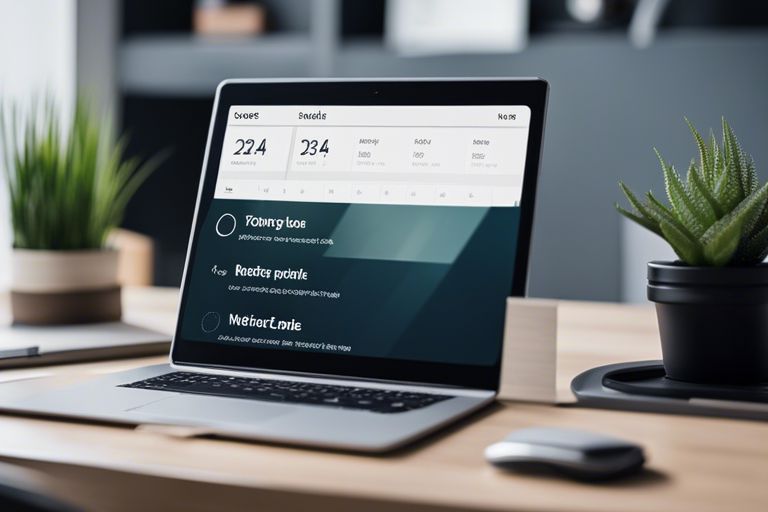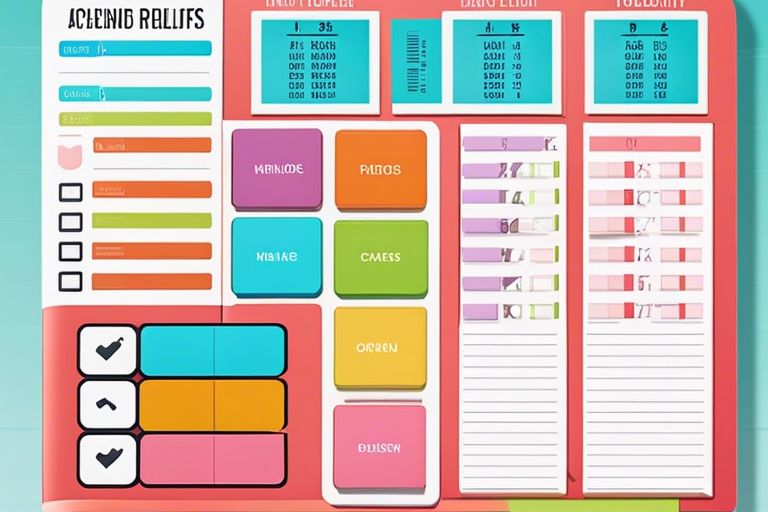In our fast-paced world, it is imperative to craft a daily schedule that allows for flexibility and adaptability in order to effectively manage your time and maximize productivity. The key is to strike a balance between structure and freedom in your daily routine. By implementing strategic time-blocking, prioritizing tasks, and incorporating buffer time into your schedule, you can create a framework that is robust and agile enough to accommodate unexpected changes and seize new opportunities. In this blog post, we will explore practical strategies and tips to help you design a daily schedule that empowers you to navigate through the day with ease and efficiency.
Laying the Foundation
To create a daily schedule that allows for flexibility and adaptability, you must first lay a solid foundation. This means taking the time to define your priorities and goals, as well as establishing time blocks for core activities. By doing so, you set yourself up for a schedule that is both structured and fluid, giving you the freedom to adapt to unexpected events while still accomplishing your most important tasks.
Defining Your Priorities and Goals
When it comes to creating a flexible and adaptable daily schedule, knowing what is most important to you is essential. Take the time to define your priorities and set clear goals for what you want to achieve each day. Whether it’s completing work projects, spending quality time with your family, or pursuing personal interests, knowing your priorities will help you allocate your time effectively. Consider what tasks or activities align most closely with your values and long-term objectives. By identifying your priorities and goals, you can tailor your daily schedule to ensure that you are dedicating time to the things that matter most to you.
Establishing Time Blocks for Core Activities
One effective way to create a daily schedule that allows for flexibility and adaptability is to establish time blocks for your core activities. This means allocating specific chunks of time for tasks such as work, exercise, relaxation, and family time. By assigning dedicated time blocks to these activities, you can ensure that they are consistently integrated into your schedule. However, it’s important to remember that flexibility is key. While it’s helpful to have set time blocks, be open to adjusting them as needed based on unforeseen circumstances or opportunities that may arise. This approach allows you to maintain structure while still being able to adapt to changes as they occur.
Building Flexibility into Your Schedule
Any effective daily schedule should account for the unexpected. Life is unpredictable, and it’s important to build flexibility into your schedule to accommodate changes and adapt as needed. This doesn’t mean sacrificing structure, but rather creating a framework that allows for adjustments when necessary. Building flexibility into your schedule will help you stay on track even when unexpected events arise.
Techniques for Adaptive Scheduling
When building flexibility into your schedule, consider utilizing time-blocking techniques. This involves allocating specific time slots for different tasks or activities but keeping those slots flexible. For example, you might allocate a two-hour block for a work project, but allow yourself to shift that block if unexpected tasks or opportunities arise. This allows you to maintain a sense of structure while also being able to adapt to changing circumstances.
Handling Unexpected Changes and Interruptions
Inevitably, unexpected changes and interruptions will arise throughout your day. It’s important to have strategies in place for dealing with these disruptions without derailing your entire schedule. One effective technique is to prioritize your tasks and activities, so if something unexpected comes up, you can easily identify which items can be shifted or postponed. Additionally, when interruptions occur, take a moment to assess their urgency and impact. This will allow you to make informed decisions about how to adjust your schedule accordingly.
Overall, these techniques for adaptive scheduling and handling unexpected changes and interruptions are key to maintaining a flexible and adaptable daily schedule. By incorporating these strategies into your routine, you can effectively navigate the challenges of daily life while staying focused and productive.

Tools and Resources
For a daily schedule that allows for flexibility and adaptability, you need to have the right tools and resources at your disposal. These can help you stay organized, manage your time effectively, and make adjustments as needed.
Technology Aids for Schedule Management
Technology can be a valuable asset in managing your daily schedule. Utilize calendar apps such as Google Calendar or Outlook to schedule appointments, set reminders, and organize your day. Time management apps like Trello or Asana can help you prioritize tasks and stay on track. Additionally, consider using productivity tools like Evernote for note-taking and task management. These digital tools can streamline your schedule and provide the flexibility to adapt to changes as they arise.
Analog Methods for Planning and Adaptation
While technology can be a great asset, analog methods can also play a crucial role in planning and adaptation. Keep a physical planner or journal to jot down important tasks, appointments, and deadlines. This can serve as a backup in case of technological malfunctions or as a quick reference when you need to make adjustments on the go. Using sticky notes or a whiteboard can also help you visualize your schedule and make changes as necessary. Having a combination of digital and analog tools ensures that you are prepared for any situation that comes your way.
Staying on Track
Despite your best efforts to create a flexible schedule, it can be challenging to stay on track, especially when unexpected events and distractions arise. However, there are strategies you can employ to help you maintain your daily schedule while also being adaptable.
Reviewing and Tweaking Your Schedule
Regularly reviewing and tweaking your schedule is essential for ensuring that it remains effective and adaptable. Take a few minutes at the end of each day to reflect on how well you were able to stick to your schedule and identify any areas where you may need to make adjustments. Are there certain tasks that consistently get pushed aside? Are there time blocks that are too rigid, causing you to feel stressed if something unexpected comes up? By reviewing your schedule daily, you can make necessary tweaks to ensure it remains flexible and adaptable.
The Role of Discipline and Self-Care
Discipline is vital for sticking to a daily schedule, but it’s essential to balance this with self-care. You need the discipline to say no to distractions and to prioritize your tasks, but you also need to take care of yourself to avoid burnout. Incorporating regular breaks, exercise, and activities that bring you joy into your daily schedule can help you maintain the discipline needed while also ensuring you are looking after your well-being.

The Importance of a Flexible Daily Schedule
The key to creating a daily schedule that allows for flexibility and adaptability is to prioritize your tasks and allocate time blocks for each activity. By setting aside designated time for important tasks, you can ensure that essential responsibilities are met while also allowing for unplanned events or changes in plans. Additionally, building in buffer time between activities can provide flexibility to adjust your schedule as needed. Remember to be realistic about what you can accomplish in a day and be willing to adjust your schedule as necessary. By creating a framework for your day that is adaptable, you can maintain a sense of control while also being open to unexpected opportunities or changes. Ultimately, a flexible daily schedule can help you to manage your time effectively and stay on track with your goals, while also allowing room for spontaneity and change.








